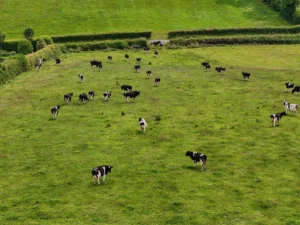
Cattle, greenhouse gases and the case for better methane metrics
Why the global warming potential of methane emissions from cattle production needs a closer look
Sarah White, a Dubai-based yoga instructor, former gymnast and lifelong fitness enthusiast, has always prioritized her health. Whether she’s empowering other yoga instructors through her coaching business or nourishing her mind with books that promote inner balance and strength, Sarah has made wellness a part of her everyday life.
Like many in the wellness community, Sarah once questioned whether consuming foods like meat and dairy aligned with her personal values. First, she decided to eliminate meat and fish from her diet. Then, in 2017, she adopted a fully vegan lifestyle — which she adhered to for five years.
Sarah’s decision to embrace veganism was inspired by ahimsa, one of the five yamas (or ethical guidelines) in yoga philosophy. Ahimsa means “nonviolence” and reflects a commitment to live without harming living beings or the environment.
Initially, Sarah’s vegan diet seemed beneficial on numerous levels: She felt more energetic, her skin became clearer, and she believed that she was truly “living without harm.”
Over time, though, Sarah realized that she was actually inflicting harm — upon herself.

“I started feeling really low-energy and depressed,” Sarah says about that time in her life. “I knew in my body that something was different and that I was struggling to do things I shouldn’t be struggling to do. I’d get home and be on the sofa, and even the thought of showering was too much. As a human, that shouldn’t feel like that requires too much effort.”
In addition to fatigue, Sarah developed a persistent rash, experienced significant weight loss, and faced growing concerns from family and friends. Alarmed, she sought medical advice.
“When the blood tests came back, I saw that I was malnourished,” Sarah recalls. “I was just depleted completely. I wasn’t getting what I needed from my food.”
Despite Sarah’s efforts to eat mindfully and follow a balanced vegan diet, her test results and physical symptoms made it clear that her active lifestyle required more than what she could get from plant-based sources alone — particularly when it came to protein.
The World Health Organization (WHO) recommends that healthy adults consume enough protein each day to account for around 12–15% of their total calorie intake. Older adults, those who are pregnant or breastfeeding, and those who are very physically active — like Sarah — may require even higher levels of protein to maintain their strength and well-being.
Unfortunately, many people’s diets are deficient in protein, with one U.S. study finding that 11% of adults aged 19–50 regularly fell short of the estimated average requirement (EAR), while 22% failed to meet the recommended daily allowance (RDA) of protein, as established by the National Academy of Medicine.
Vegans are particularly susceptible to protein deficiencies, because plant-derived proteins are less concentrated and less easily absorbed by the human body than proteins from animal sources, such as meat, dairy, eggs and fish. For instance, you’d have to eat 48 ounces of raw spinach to consume the same amount of iron found in one 4-ounce steak.
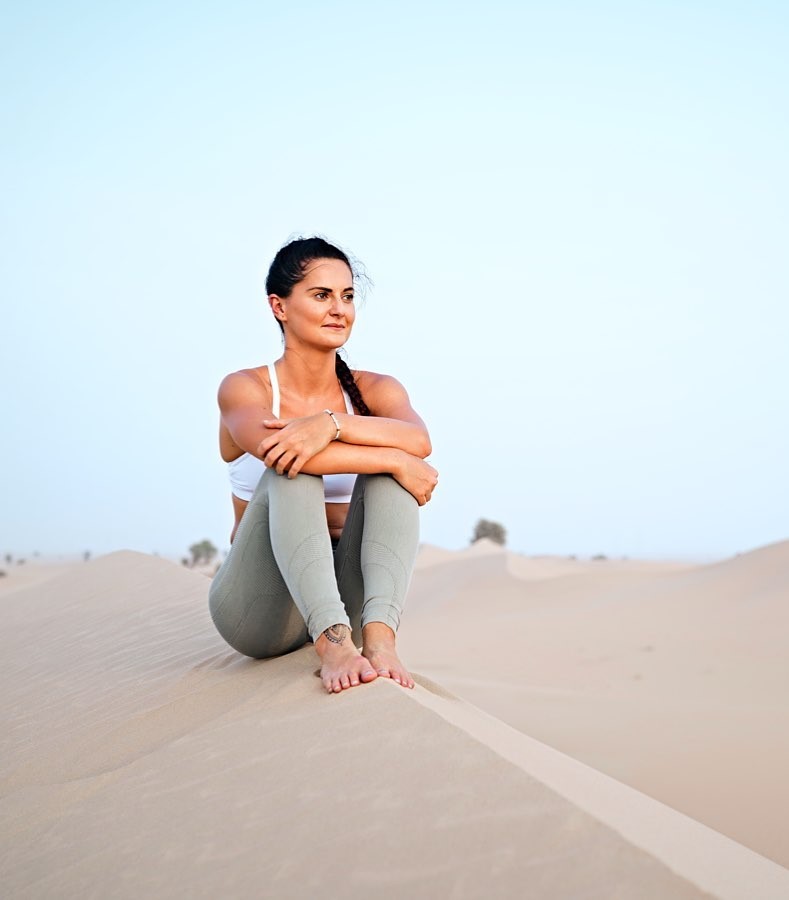
Sarah’s bloodwork results were a turning point. After careful consideration, she decided to reintroduce animal-sourced foods like meat, dairy and eggs into her diet.
“I was so fed up with the way I was feeling,” she says. “My brain was just like, ‘This is something you need to do.’”
The transition wasn’t easy. Veganism had become part of Sarah’s identity, and reintroducing animal-sourced products into her diet felt uncomfortable at first. She began the process cautiously, starting with bone broth, and eventually, she began adding scrambled eggs as a hidden protein source within familiar foods. As Sarah ate eggs for the first time in five years, she recalls, “I was thinking, ‘Oh God, this is wrong, this is terrible.’ But my body was having the opposite reaction. My body was like, ‘Give it to me!’”
In the days and weeks that followed, Sarah’s body continued to respond well as she slowly reintroduced more foods, like steak, milk, fish and butter.
“My muscles, my power, my strength and how I was feeling throughout the day completely changed,” she says. “My body composition changed.”
Since reincorporating foods like meat and milk into her diet, Sarah continues to embrace a mindful approach to eating — only this time, she’s balancing nutrition with ethics and sustainability. From buying high-quality cuts of sustainably sourced meat to reducing food waste, Sarah now makes choices that nourish her body holistically.
“If I’ve bought it and it’s come from an animal — or anywhere, to be honest — it’s getting used rather than being thrown out and wasted,” she notes.
In a time when the impact of animal agriculture, and especially cows, has become a central focus of global discussions about sustainability, Sarah’s story is a reminder that our relationships with food can be deeply personal and completely unique.

Sarah’s story isn’t about advocating for one diet over another; it’s an invitation for people to trust their intuition and to explore what works best for their own bodies and dietary needs.
Her advice?
Be part of the conversation. Discover and share how cows play a vital role in nourishing people around the world, providing them with essential nutrients, supporting communities and contributing to sustainable food systems. Click here to play an active role in shaping a more sustainable planet for future generations. Sign up for our World Without Cows newsletter to receive notifications about the documentary’s release date, new online content and how you can get involved.

Why the global warming potential of methane emissions from cattle production needs a closer look
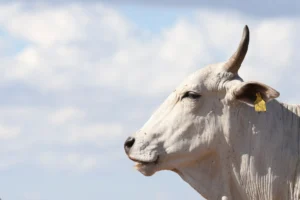
At COP30, the world’s eyes are on Brazil, and the cattle ranchers leading a global transformation.
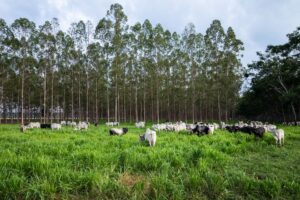
Restoring 40 million hectares of pasture could feed billions and ease pressure on the Amazon. Is the world paying attention?
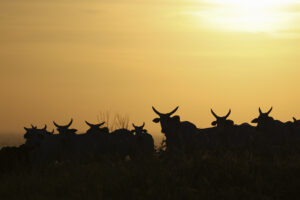
New mini-doc explores deforestation, food security and the Brazilian cattle sector’s path to a more sustainable future
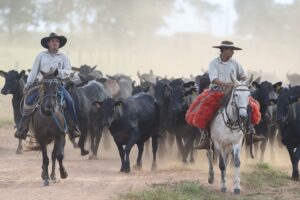
Mention Brazilian beef, and you’re likely to spark discussion about familiar themes: deforestation, emissions and blame. What do we find when we dig deeper? Here are the answers to five top questions about Brazil’s role in protecting the Amazon and feeding the world.
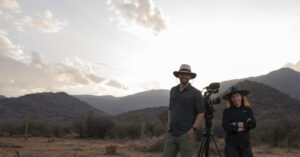
From science to the big screen: Discover how a single question grew into a global journey.
As climate change intensifies and the world’s population continues to grow, the pressure on our global food production system mounts. You can play an active role in shaping a more sustainable planet for future generations. Fill out the form below to learn more about how you can partner with us.
Receive notifications about the release date, new online content and how you can get involved